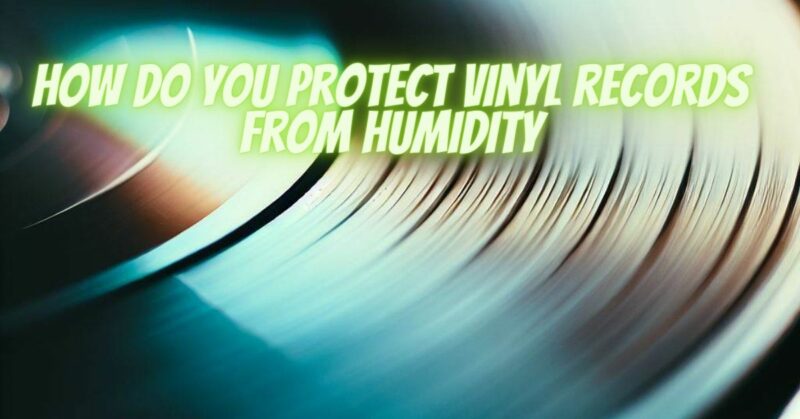Humidity can significantly impact the condition and longevity of vinyl records. Excessive moisture can lead to warping, mold growth, and deterioration, while low humidity can cause brittleness and static buildup. Protecting your vinyl records from humidity is crucial for preserving their sound quality and overall integrity. In this article, we will provide you with essential tips and practices to safeguard your vinyl records from the harmful effects of humidity.
- Control the Environment: Create a controlled environment for storing your vinyl records. Choose a room or area that is climate-controlled and insulated from external factors. Avoid areas prone to high humidity, such as basements or rooms with poor ventilation. Ensure the space is not exposed to direct sunlight, as this can increase temperature and humidity levels.
- Use a Dehumidifier: If you live in a humid climate or have high humidity levels in your home, consider using a dehumidifier. Dehumidifiers help remove excess moisture from the air, reducing the risk of warping and mold growth. Place the dehumidifier in the room where your records are stored and set it according to the recommended humidity level (40-60%). Regularly monitor the humidity levels using a hygrometer to ensure they remain within the optimal range.
- Store Records Vertically: Store your vinyl records vertically in sturdy record storage shelves or crates. Vertical storage prevents records from leaning against each other, allowing air circulation and minimizing the potential for mold growth. Avoid overpacking the shelves or crates, as overcrowding can restrict airflow and increase humidity levels.
- Inner and Outer Sleeves: Use high-quality inner sleeves and outer jackets to protect your vinyl records from moisture. Inner sleeves made of anti-static polyethylene or paper prevent scratches and protect against dust and moisture. Outer jackets, preferably made of polypropylene or polyethylene, provide an additional layer of protection against humidity and physical damage. Replace damaged or worn sleeves and jackets to maintain optimal protection.
- Silica Gel Packs: Place silica gel packs inside record storage shelves or crates. Silica gel is a desiccant that absorbs moisture, helping to maintain a dry environment around your records. Ensure the silica gel packs are in a sealed container or fabric pouch to prevent direct contact with the records, as loose gel can cause damage if it comes into contact with the vinyl or labels.
- Regular Inspection and Cleaning: Regularly inspect your records for signs of mold, mildew, or warping. If you notice any issues, take immediate action to address them. Clean records using a carbon fiber brush or record cleaning brush to remove dust and debris that can attract moisture and promote mold growth. Maintain a clean and dust-free storage environment to minimize the risk of humidity-related issues.
- Avoid Sudden Temperature Changes: Avoid subjecting your vinyl records to sudden temperature changes, as this can cause condensation and increase humidity levels. When moving records from a cold environment to a warmer one, allow them to acclimate gradually to the new temperature before playback or storage.
Conclusion:
Protecting vinyl records from humidity is essential for maintaining their sound quality and longevity. By controlling the environment, using dehumidifiers, storing records vertically, utilizing inner and outer sleeves, employing silica gel packs, conducting regular inspections and cleaning, and avoiding sudden temperature changes, you can safeguard your vinyl records from the damaging effects of humidity. With proper protection, you can enjoy your record collection for years to come while preserving its pristine condition.


